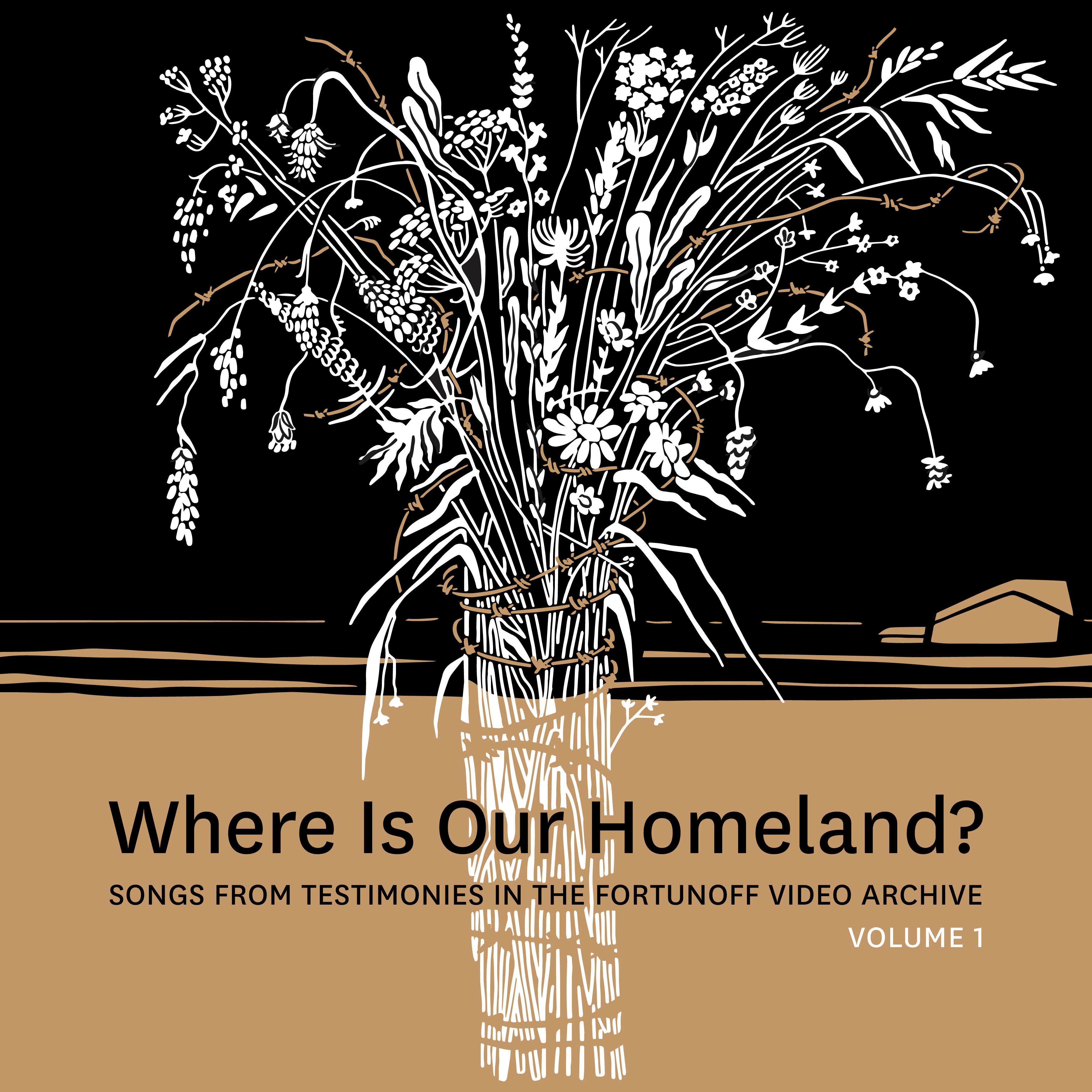In the Nazi concentration camps of World War II, Jewish prisoners forged significant bonds and created ephemeral documents of their torturous experiences through song. Yale University's Fortunoff Video Archive for Holocaust Testimonies has produced an album, in collaboration with musicologist and musician D. Zisl Slepovitch, to honor the significance of these works: "Where Is Our Homeland?: Songs from Testimonies in the Fortunoff Video Archive, Volume 1."

"The widely diverse compositions presented on the album recreate a multidimensional image of people's lives and the multiple identities they carried — as Jews by faith and roots, and as European citizens (Poles, Germans, Russians) by culture," said D. Zisl Slepovitch, musician-in-residence at the Fortunoff Video Archive and thall songse composer and arranger for "Where is Our Homeland?" "The core of this collection conveys the ways people managed to survive during the Holocaust, and the support they gained through the songs they wrote and sang in the ghettos and concentration camps all across Central and Eastern Europe."
Volume 1 of "Where is Our Homeland?," features 13 tracks of songs originally shared by Holocaust survivors in interviews conducted by the Fortunoff Video Archive, whose collection features no less than 4,400 individual testiomies -- more than 12,000 hours of recorded material in over a dozen languages. In a number of interviews, survivors recall songs and poems. For example, in her 1994 interview, Liubov K., who survived Nazi-occupied Zvenigorodka, Ukraine, said: "Everyone [wrote the songs], all together. This one would give a word, that one would give two. This one a line, and the next would add another. That's how it came together for us." The songs created community, granted a form of power to their composers (as some songs mocked captors), and fostered a sense of hope for survival.
All songs were performed by Slepovitch (woodwinds ), Joshua Camp (accordion, piano), Dmitry Ishenko (contrabass), Craig Judelman (violin), and Sasha Lurje (vocals). Liner notes include contextual information for each song, translations by Daniel Kahn and Yeva Lapsker, and biographical information about each of the survivors who originally sang the song in their testimony. Cover art was produced by Yulia Ruditskaya.
To listen and learn more: http://fortunoff.library.yale.edu/resources/audio/homeland/
About Fortunoff Archive at Yale University Library
In 1979, the Holocaust Survivors Film Project began collecting video-taped interviews of Holocaust surivors in the New Haven area. In 1981, the collection was donated to Yale University and The Video Archive for Holocaust Testimonies, part of the Yale University Library, opened its doors to the public the following year. The Fortunoff Archive as been working to record, collect and preserve Holocaust witness testimonies — and facilitate the work of researchers, educators and the general public — ever since.
The Fortunoff Archive currently holds more than 4,400 testimonies, which are comprised of over 12,000 recorded hours of videotape. Testimonies were produced in cooperation with thirty-six affiliated projects across North America, South America, Europe, and Israel, and each project maintains a duplicate collection of locally recorded videotapes. The Fortunoff Archive and its affiliates recorded the testimonies of willing individuals with first-hand experience of the Nazi persecutions, including those who were in hiding, survivors, bystanders, resistants, and liberators. Testimonies were recorded in the language the witness preferred, and range in length from 30 minutes to over 40 hours (recorded over several sessions).
About "Where is Our Homeland"
In 2018, the Fortunoff Video Archive for Holocaust Testimonies, along with musician-in-residence D. Zisl Slepovitch and former Hartman fellow Sarah Garibova, began production of an album of songs recalled in testimonies. This album, Where is Our Homeland? Songs from Testimonies in the Fortunoff Video Archive, reached fruition in Fall 2019, composed and arranged by musicologist and musician D. Zisl Slepovitch. Learn more at SongsFromTestimonies.org.
Arrange a Listening Event
Host musicologist and musician D. Zisl Slepovitch and vocalist Sasha Lurje for a virtual "listening event" and Q&A online with your congregation, community group, university, or institutions. To schedule, email fortunoff.archive[at]yale.edu
